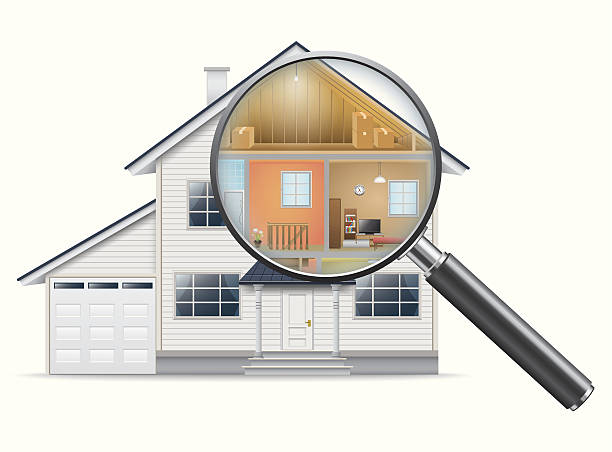Buying a home is likely the biggest purchase you’ll ever make. While exciting, it can also be overwhelming trying to evaluate everything about the property on your own. That’s why hiring a licensed home inspector is so important when house hunting.
In this post, we’ll look at:
- What a home inspection is
- Why you need a licensed home inspector
- What happens during an inspection
- How to choose the right home inspector
- Questions to ask potential inspectors
- Red flags to watch out for
- How much a home inspection costs
Let’s start by looking at what exactly home inspectors do.
What Does a Home Inspector Do?
A home inspection is when a licensed home inspector thoroughly examines both the interior and exterior of a home to evaluate its physical condition. The goal is to identify any issues or defects in the home’s major systems, structure, and overall maintenance that may require repairs now or down the road.
Some key things inspectors look at include:
- Roof, chimney, gutters
- Exterior like siding, windows, doors
- Structure – foundation, floors, walls, ceilings
- Plumbing, electrical, and HVAC systems
- Insulation, ventilation, weather sealing
- Major appliances
- Overall living areas, garages, basements
The inspector then provides a detailed written report summarizing their findings, along with any recommendations for repairs, replacements, or further evaluation by professionals.
Why You Should Hire a Licensed Professional
When you’re excited about a home, it can be tempting to downplay or miss issues yourself. But a Licensed Home Inspector is trained to objectively evaluate the property using technical skills and tools the average person lacks.
A licensed inspector has undergone training and testing to earn state certification proving their competence. They must carry liability insurance and follow a code of ethics. Using a licensed professional protects you from:
- Missing or misjudging the severity of issues. A layperson may see surface cracks as just cosmetic when they actually signal foundation problems. Professionals know what to look for.
- Buying a money pit. Big problems like mold, faulty wiring, or roof leaks can cost tens of thousands to fix. An inspection helps avoid expensive surprises.
- Overlooking safety hazards. Faulty railings, outdated electrical panels, or fire hazards could put your family at risk. Inspectors test for safety issues.
- Waiving contingencies. Many buyers waive inspection contingencies to make their offer more attractive these days. This is extremely risky without an inspection!
- Post-sale disputes. Thorough documentation of a home’s condition protects you from any claims later on about “pre-existing” defects.
When you hire a qualified home inspector, you gain peace of mind knowing you have an expert on your side assessing one of the biggest investments of your life.
What Happens During a Home Inspection
Home inspections take 2-3 hours on average for a typical single-family home. The inspector will begin outside, systematically evaluating the roof, exterior, ventilation, drainage, landscaping, and more. They’ll look for visual evidence of damage or improper repairs.
Moving inside, they’ll inspect living areas first, followed by plumbing fixtures, electrical components, the HVAC system, water heater, appliances, foundation, and other areas. Specialized tools like moisture meters, outlet testers, and thermal cameras help detect less obvious issues.
As they go, inspectors take detailed notes and document issues with photographs. You’re encouraged to follow along during the inspection and ask questions. Don’t be surprised if an inspector climbs on the roof, crawls under sinks, or uses a ladder to check the attic. Afterward, they will review key findings with you.
Within 1-2 days, you’ll receive a comprehensive written report summarizing the condition of the home’s major systems and components. It will detail any suggested repairs, maintenance, or areas requiring further specialist evaluation. The report is your objective reference point for understanding the property’s condition and making an informed purchase decision.
Choosing the Right Inspector for You
Not all home inspectors are equal when it comes to experience, expertise, and professionalism. Here are key tips for choosing the right one:
- Verify credentials: Look for membership in national and state inspectors associations and ASHI or NACHI certification as proof of training. Confirm active state licensing.
- Ask about experience: Choose an inspector who has inspected 200+ homes with 5+ years of experience in your area. They’ll best spot local issues.
- Check specialties: Some inspectors have additional certifications in areas like radon, mold, or commercial properties. Make sure their expertise matches your needs.
- Read reviews: Online reviews and references can provide insight into an inspector’s thoroughness, reporting, and professionalism.
- Confirm insurance: Reputable inspectors carry liability insurance, typically $500k-$1 million. It protects you from damage they might miss.
- Compare services: Many inspectors offer extra services like sewer scopes, water testing, and infrared scans for additional fees. Decide what you need.
How Much Does a Home Inspection Cost?
Home inspection fees typically range from $400-$700 for most single-family homes under 3,000 square feet. Here are some factors that can affect the cost:
- Home’s location: Inspections cost more in major metro areas
- Home’s size and age: Larger/older homes take more time and effort to inspect
- Scope of services: Specialized tests like radon and mold cost extra
- Insurance: Inspectors with higher liability coverage often charge slightly more
While inspection fees aren’t covered by your real estate agent, they’re well worth paying out of pocket for your protection. Don’t choose an inspector based on price alone. A thorough inspection can save you exponentially more on undiscovered defects.
Summary
Inspecting a home before purchase is critical for understanding its true condition beyond surfaces and virtually eliminating the risk of expensive surprises. Be sure to choose a fully licensed home inspector who takes the time for a comprehensive, professional inspection. Waiting to save a few hundred dollars could cost you down the road in major headaches and repairs.



